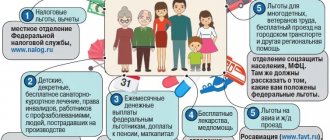Divorce from a disabled spouse in the civil code does not differ from the usual one, but in some cases this may serve as a basis for special consideration of the case. A disabled person is a person who has obvious physical impairments acquired as a result of severe illness or injury. They, as a rule, affect a person’s life, making him incapacitated to some extent. There are certain disability groups; they are assigned on the basis of a medical report.
Basic Concepts
Alimony relations between spouses, including former ones, are regulated in Chapter 14 of the Family Code of the Russian Federation. Article 89 of this regulatory act lists an exhaustive list of people who have the right to seek from a spouse who has the necessary financial capabilities the payment of alimony benefits.
These individuals include:
- A spouse who, due to physical or psychological factors, is unable to work and at the same time needs financial support.
- A pregnant wife or a woman caring for a child under 3 years of age.
- A needy parent caring for a child who is disabled until he reaches adulthood or disabled in group 1 from birth.
- The needy spouse is a pensioner;
- Disabled parents - from their adult and able-bodied children.
The main criterion for requesting financial assistance in this case is need. This term is not specified or exhaustively defined in any regulations, therefore it is determined independently in each individual case, by comparing a person’s income and expenses necessary for his normal existence.
A special class of needy spouses includes a husband or wife who is classified as a disabled person. Alimony relationships between these persons and their former spouses are distinguished by the fact that there is no interest in them for the children.
Also, a spouse who becomes disabled both during marriage and within 1 year after divorce has the right to demand maintenance for himself.
Example: Marina P. filed a lawsuit against her ex-husband, indicating that as a result of an accident that occurred during the marriage, she was assigned disability group II and could not fully support herself. In this regard, she asked to collect alimony in the amount of 15,000 rubles monthly from her ex-husband.
The court found no grounds for satisfying the claim because:
- The plaintiff is employed in a private company, her income is twice the subsistence level in the region;
- The plaintiff also receives additional income from renting out apartments and non-residential premises;
- Interest from the bank deposit is transferred to her account monthly;
- Her total income is twice the income of her ex-husband, while the husband’s dependent child is from his first marriage;
- The costs of treatment and rehabilitation procedures presented to the court and confirmed do not exceed even 1/6 of the plaintiff’s total income.
Thus, the court did not see the need for help and rejected the ex-wife’s claim against her ex-husband.
Examples from judicial practice
Below are common cases from court practice in this category of cases.
- spouses L. and G. were officially married for 7 years, then divorce followed. The husband, while married, received an industrial injury and was recognized as a group 2 disabled person. During the divorce, he filed a lawsuit to collect alimony from his ex-wife for his maintenance due to incapacity for work. During the hearing, the court found that after registration of disability, the plaintiff acquired the profession of “Programmer” and worked in this specialty. His income, excluding the disability pension, is 4 times higher than the income of his ex-wife. Based on this information, the court found that the plaintiff is not in need and can support himself. The man's claims were denied;
- Husband S. and wife K. lived in a registered marriage for 5 years, after which it was dissolved. Citizen S. (plaintiff) at the time of the wedding was a disabled person of group 2, his wife knew this. As the applicant explained, he acquired a disability while playing sports. After the divorce, the man filed a lawsuit to collect alimony from his wife. The state body refused to satisfy his request, since the disability was acquired long before the marriage, which does not meet the requirements established by subparagraph 3 of paragraph 1 of Article 90 of the RF IC.
When collecting alimony, a disabled spouse must remember that he has the right to go to court after an unlimited amount of time if his situation complies with the provisions of the said article of the RF IC.
But the legislation has established a limit on the period for collecting benefits: this can only be done 3 years prior to the filing of the claim. This is possible if the unscrupulous spouse avoided providing financial assistance.
Is it possible to divorce a disabled person?
The text of the Family Code does not contain the concept of a disabled spouse. Thus, disability does not regulate marital relations in any special way.
The conditions for registering and dissolving a marriage with a disabled person are no different from the rules and legal norms of ordinary citizens. Therefore, the law allows divorce from a disabled person.
The only exceptions are the pregnancy of the spouse or the presence of a child who is less than 1 year old.
Legal grounds for divorce from a disabled person
The Family Code, just like the civil code, considers the relationship between two people without taking into account their physical condition, therefore the presence or absence of disability in most cases does not affect the conduct of the trial and the making of a decision.
In the legislative framework there is no distinction between the standard process of divorce and divorce from a disabled spouse, therefore the procedure and its conditions are identical.
In most cases, the judicial authorities use the standard mechanism for divorce, however, there are a number of exceptions, on the basis of which a divorce from such a person will take place under different conditions. The influencing factor in this proceeding is the type of disease for which the disability was awarded and the circumstances that contributed to its occurrence.
It is worth carefully reading another condition of the Family Code of the Russian Federation - the obligation to support a disabled spouse. This award can only be made in the event of a counterclaim from the defendant, with a request to award him alimony.
Collection of alimony in certain cases
To understand in detail the nuances of collecting alimony for a disabled child and his mother, it is recommended that you familiarize yourself with examples taken from judicial practice.
If the father is unemployed
Lack of official employment is not grounds for cancellation of alimony obligations. If the father does not work, child support is set at a fixed amount, taking into account the cost of living.
Example: A child is 10 years old. Parents are divorced and have disabilities. The minimum for living in his region is 11,000 rubles. per person. The mother filed a claim for alimony, indicating in it a requirement to pay 20,000 rubles. monthly.
The claim was partially satisfied, the defendant was ordered to pay only 5,500 rubles.
If the woman had sought additional compensation for medical expenses, the amount would have been divided in half.
If your ex-husband is in the army
During his service, the payer will accumulate a debt for alimony, which he is obliged to pay upon his return. However, on the basis of Art. 114 of the RF IC, he may be partially exempted from paying a penalty or the principal debt, since the service is a valid reason and the man could not influence the circumstances.
Example: A father regularly paid 25% of his salary to his daughter with a disability for 5 years, the amount was 15,000 rubles. monthly. He was drafted into the army for 1 year, and a debt of 180,000 rubles arose. The penalty is calculated as follows:
180,000 x 0.1% = 180 rub. in a day.
180 x 365 = 65,700 rub. - penalty.
After returning, the man provided documents from the military registration and enlistment office confirming his service. Due to the fact that he could not avoid missing payment deadlines for valid reasons, he was released from transferring the penalty, but was required to pay the principal debt.
From a disabled father
If the father is disabled, the deduction of alimony will be based on the amount of his disability pension.
Example: In 2021, the pension of disabled people of group 1 is 9,919.73 rubles. The man has two disabled children, for whom he is obliged to transfer the following amount:
9,919.73 x 33% = 3,273.52 rubles.
If the payer has a poor financial situation, he himself can demand alimony for his maintenance from his wife in accordance with Art. 90 of the RF IC, provided that the disability occurred during marriage or within 1 year after divorce.
Divorce between healthy spouses and when one of the spouses is disabled: are there any differences?
Legislation understands disability as a special condition of a person in which his health does not allow him to carry out normal activities, including work. A disabled person is practically unable to provide for himself. But disability does not give you the right to special benefits when divorcing a healthy spouse.
The process of severing relations is built according to the general rules outlined in Chapter 4 of the RF IC, and can be carried out through the registry office and in court. However, disability may serve as a basis for assigning a special type of alimony payments. Since disabled citizens often require additional financial support, the law provides for the obligation to pay alimony for former spouses. But they are prescribed only under certain conditions and exclusively for disabled people who have proven their own need.
The procedure for filing a divorce from a disabled person
The presence of disability in one of the spouses, with rare exceptions, does not in any way affect the specifics of the trial. Therefore, the procedure for filing a divorce with a disabled person is almost identical to that between ordinary capable citizens.
Where to contact?
There are two ways to divorce a disabled person: through the registry office or in court. It all depends on the circumstances of the divorce and the degree of agreement of the spouses with this process.
The first option, divorce through the registry office, is suitable for couples without children and who agree to divorce. In a particular case, it is possible within 30 days.
There are several exceptions when, even if there are children, a marriage can be dissolved by submitting only one application to the registry office and only by one of the spouses:
recognition of one of the spouses as missing;
- recognition of the incapacity of one of the spouses as a result of the presence of a psychological illness;
- being in prison for more than three years.
Divorce from a disabled person through the court is carried out in the following circumstances:
- whether spouses have common small children;
- occurrence of property disputes;
- refusal to divorce one of the spouses.
If the disabled spouse refuses to dissolve the marriage voluntarily, you should contact the judicial authorities with an application. The reason “disability” should be indicated in a special column.
After the initial hearing, the court will subsequently conduct an examination to prove that the spouse has a disability and disability. With the help of this conclusion, confirming the presence of a group in an incapacitated spouse, you can obtain a divorce without mutual consent.
You should contact the registry office and write a corresponding application on form No. 9. In this case, divorce is possible even if there are young children.
List of required documents
When filing for divorce from a disabled person, it is important not to forget about other documents:
- receipt of paid state duty for the upcoming divorce;
- documents confirming the presence of common young children (birth certificate);
- two copies of the statement of desire to divorce (the other copy is required for the defendant);
- a conclusion confirming the incapacity of the second spouse.
Payment of state duty
With mutual agreement, the state duty is paid in the amount of 650 rubles for each spouse. If applications are submitted by one spouse, and the other is disabled with a group, then the amount is 350 rubles.
You can pay this fee at any bank through a cash desk or terminal, in your Sberbank personal account or through the government services portal. Proof of payment of the fee is a printed receipt.
You can contact the registry office only at the institution where these relations were previously legalized, or you can submit an application using the public services portal, or you can contact the MFC in person.
Division of property with a disabled spouse
There is no separate normative act or article of the Family Code regulating the procedure for dividing property of spouses if one of them is recognized as disabled. The general rules outlined in Chapters 7 and 8 of the RF IC apply.
Division of property by agreement
If there are no disagreements about property, spouses have the right to independently draw up an agreement describing how the property will be divided. The document is certified by a notary, as defined in paragraph 2 of Article 38 of the RF IC. The absence of disagreements regarding joint property and the absence of minor common children allows a divorce through the registry office.
Division of property in litigation
The only way out for spouses who cannot come to an agreement on the division of joint property is to go to court. According to the general rules outlined in Article 39 of the RF IC, everyone claims 50%.
Paragraph 3 of Article 38 of the RF IC allows for the transfer of certain things in full to one of the spouses, even if the cost of the latter is greater than the share due to the individual. However, in this case, the court orders compensation in favor of the second spouse, which the new owner is obliged to pay.
The procedure for determining the place of residence of common children
There are two ways to determine who the children will be with after a divorce from a disabled person:
- enter into a joint agreement;
- with the help of a court decision and opinion.
To determine the place of residence of children in the first way, it is enough to draw up a written agreement in a simple form and, in the case of mutual consent of the parents, sign it. It is not necessary to notarize such a document.
The second method is used in all other cases when parents cannot reach a common agreement on resolving this issue.
When deciding on the fate of the children's future residence after divorce, the court, first of all, focuses on the interests of the child.
When determining the child’s place of residence, the court will take into account:
- child's attachment;
- age of the child;
- individual characteristics of parents;
- conditions of education, development and care for a minor.
Child support after divorce can be deducted from disability benefits.
Can a disabled ex-spouse file for alimony?
The Family Code states that one of the spouses with a health problem has the right to file a claim for alimony against the former, healthy spouse.
The court's decision will be influenced by the following provisions:
- income and availability of property of the plaintiff and defendant;
- expenses of a cripple;
- presence of a child.
In addition, the court has the right to refuse to award payments under the following circumstances:
- marriage lasting less than a year;
- obtaining a group as a consequence of leading an unhealthy lifestyle;
- indecent conduct during marriage towards the defendant.
An incapacitated spouse can file a claim for alimony no later than one year after the divorce.
Thus, it is quite possible to divorce a disabled person. And, as practice shows, a divorce from an incompetent husband or wife is not much different from a regular divorce. However, each case is individual, and seemingly similar cases do not always end in the same court decision.
What is taken into account when assigning alimony
The court first of all pays attention to confirmation of the spouse’s incapacity and need. For example, a group 3 disabled person can work and support himself. The issue of alimony is considered on an individual basis. And only disabled people of group 3, who cannot be provided with work on the recommendation of VTEK, will probably be able to claim payments. This is evidenced by judicial practice, for example, the consideration of case No. 11-170/2014, carried out in Rostov-on-Don on September 22, 2014.
The second most important factor is the income of the spouse from whom alimony is required. The amount of payments established by the court directly depends on the profit.
Deadline for applying for alimony for a disabled spouse
According to Art. 107 of the RF IC, if a husband or wife has the right to collect alimony, they can go to court at any time.
If a disabled wife or husband proves that attempts were previously made to receive financial assistance from the spouse, but were refused, the recipient has the right to recover the amount of alimony for the previous period, but no more than 3 years before going to court.
Registration of alimony on a voluntary basis
If the couple who decided to file for divorce still have friendly relations, they can agree on alimony and enter into an agreement.
The legal basis for contractual relations is laid down in Chapter. 16 IC RF. According to Art. 99 of the RF IC, the agreement is concluded between the person who undertakes to pay alimony and the recipient himself.
The document is an agreement that states the obligations of one party to provide for the other, indicates the amount of payments, and stipulates the frequency of their receipt. One of the mandatory items is sanctions for failure to fulfill obligations.
As part of the agreement, it is possible not only to establish the order of cash receipts, but also to transfer material assets for alimony.
The document is drawn up in writing and certified by a notary.
Amount, amount of alimony
When determining the amount of alimony for a disabled husband or wife, the following factors are taken into account:
- Availability of the disabled ex-spouse with the funds necessary for a normal existence.
- Does he need extra money to meet important life needs?
- The ex-husband and wife have dependents or common children.
- Do adult children provide financial assistance to a spouse in need?
The amount of alimony for an incapacitated ex-husband or wife can be determined in one of two ways:
- by concluding a mutual agreement that describes specific payment amounts;
- by decision of the judicial authorities.
Such financial support is only in cash and is paid in hard cash. In this case, the amount of payments is indexed based on the cost of living. Assigning maintenance as a percentage of all income from spousal alimony is not practiced.
If the region does not have the specified cost of living, indexation occurs based on the total amount for Russia.
Procedure for paying alimony for a disabled spouse
The method and time period for alimony payments by one of the divorced spouses to the other depends on how the alimony recipient achieved such support.
If assistance was awarded through the court, then payments will be received once a month in a fixed amount, which depends on the cost of living in the plaintiff’s territory of residence.
IMPORTANT: Unlike maintenance awarded through court proceedings, assistance by agreement can be the transfer of any property (for example, an apartment, a summer house, a car), which can later be used by the alimony recipient to make a profit from the sale or rental.
The procedure for forced calculation of alimony for the husband or wife of disabled people of group 2 or group 3 is no different from the general conditions for collecting and withholding alimony for children.
If you refuse to comply with a court decision, you must:
- Obtain a writ of execution from the court to collect alimony.
- Send the writ of execution to the FSSP;
- Wait until enforcement proceedings are initiated.
Upon further reaching an agreement on voluntary payments, the claimant can always withdraw the writ of execution from the bailiffs. In this case, the debtor will pay maintenance on his own initiative.
If the financial situation of the parties changes, the interested party has the right to demand a reduction, increase in alimony, or even insist on the termination of its payment. Example: Former wife Oksana Z., who has a disability of the 2nd group, achieved through the court the recovery of alimony from her ex-husband. Their size amounted to 7 thousand rubles. At the time of the penalty, she did not have a job; for medical reasons, almost any work was contraindicated for her.
After 2 years of payments, the ex-husband filed a lawsuit to cancel the obligation to pay alimony. The claim stated that Oksana Z. currently works as the chief accountant in the company, her income is twice his own. Rehabilitation procedures as part of the treatment have been completed and the need for additional support has disappeared.
The court, having examined the case materials, sided with the ex-husband and canceled the alimony. The judge considered that Oksana Z.’s current income is sufficient to support her, she is currently able to work with some limitations, and her income level is three times the subsistence level for the adult population.
How not to pay child support to a disabled person
In addition to the cases described above, when the court refuses to collect alimony (the citizen himself caused himself to be disabled or received it outside the marriage union), payments are not made if the able-bodied spouse has other dependents, for example, small children from a new marriage or elderly parents, or he repays the loan.
Financial assistance to the ex-wife is assigned only when the husband has enough financial resources to pay it. If his income is below the subsistence level, then the application for recovery will be rejected, since the payer will not be able to provide himself with the bare minimum.
How is the need for alimony determined?
In order for the court to decide to award alimony to a disabled spouse after a divorce, he must prove his need for financial assistance from his former partner. First of all, you will need certificates and documents confirming your unsatisfactory state of health, and as a result, the inability to work fully.
In addition, statements of income received and checks for medicines and treatment can be used as arguments; if the judge sees that the money available to a disabled person is not enough to maintain his condition, then most likely the claim will be satisfied.
What determines the size of payments?
When determining the amount of alimony, the judge, guided by Art. 91 of the RF IC, takes into account:
- the financial condition of each party to the dispute;
- living wage in the place of residence of the ex-wife in accordance with her socio-demographic status.
According to the provisions of Art. 117 of the RF IC, the court assigns alimony in a specific monetary amount. This amount is a share of the minimum subsistence level in force in the place of residence of the disabled spouse. If it is not established in the region, the federal indicator is taken as the starting point. In the future, the assigned amount is indexed, since the cost of living is a floating value and, following its change, the amount of alimony also changes. There is no indication in the legislation about the maximum amount of payments.
Procedure, amount and form of payment of alimony to a disabled spouse
The amount of financial assistance and the regularity of payments can be agreed upon by the spouses independently (by drawing up an agreement) or determined in court.
The court sets the amount of alimony payments in a fixed amount; the alimony payer must transfer the funds monthly. To simplify the indexation procedure, the judge indicates an amount that is a multiple of the subsistence minimum or its share.
To calculate the final payments, many factors are taken into account, namely: the financial and marital status of the spouses, the regional cost of living and other important circumstances. It is worth noting that the legislation does not have a clear minimum and maximum of financial assistance; in addition, over time, alimony is indexed in proportion to changes in the cost of living.
Procedure for obtaining alimony
First of all, former spouses should try to peacefully resolve the issue of financial support for a disabled citizen. The alimony holder can pay a certain amount or help a disabled person on a voluntary basis, without signing any papers.
However, experienced lawyers recommend concluding a formal agreement and having it certified by a notary office, so that in the event of disputes or termination of payments, the parties have evidence of the transaction. If it was not possible to reach a consensus on the form of the amount and regularity of alimony, or if the able-bodied ex-husband/wife generally avoids providing assistance, then there is only one option left - to go to court.
How to file a claim for alimony
In order to compulsorily collect alimony for the wife of a group 2 disabled person from an able-bodied former spouse during a divorce, the alimony recipient must send a statement of claim to the court at the place of residence.
The form is accompanied by a package of documents consisting of:
- Photocopies of the plaintiff's passport.
- Photocopies of the divorce certificate.
- Health certificates or disability certificates.
- Information about the amount of pension or benefit.
- Certificates of income and financial situation of the defendant (this information is subsequently necessary to determine the amount of amounts to be paid).
After the verdict is rendered, the writ of execution is handed over to the bailiffs along with an application to open an enforcement case.
Structure of a claim for alimony for a disabled wife
A statement of claim for the recovery of alimony payments in favor of a former spouse with a disability is filed with the court of first instance, and the specific department is chosen by the plaintiff. This type of claim is subject to a three-year statute of limitations.
Important! The plaintiff (if he is a disabled person of group 1 or 2) does not pay a state fee for consideration of the claim in court; in all other cases, its cost is calculated based on the price of the application and the authority where the document was submitted. If the court grants the plaintiff's request, the defendant will be responsible for paying the costs.
In general, the statement of claim is subject to standard requirements - it must be drawn up in writing and according to a certain structure:
- Information about the judicial authority, the plaintiff, the defendant and their representatives.
- If the claim is subject to assessment, its price is indicated.
- The introductory part contains information about the marriage and the form of cohabitation (when the marriage was entered into and dissolved, whether the parties have common children).
- The main part in which the plaintiff talks about the circumstances that forced him to seek help and provides arguments.
- In conclusion, the request for alimony and its amount are indicated.
- Finally, the application lists all documents that complement the application and includes a signature with the current date.
Sample claim
Even experienced lawyers are unlikely to be able to develop and offer a universal model for any situation when collecting alimony for a husband or wife with a disability.
Each situation is individual, as is the individual claim on this issue.
Ask a Question
You can use the sample below to prepare documents yourself, but do not forget to first consult with our lawyers.
Judicial order and procedure
If the ex-husband and wife cannot agree on the payment of alimony through an agreement, either party can file a claim with the courts. The statute of limitations does not apply to such cases, but the incapacity of a spouse arising after a divorce can be taken into account only no later than 1 year from the date of divorce.
More often, the initiator of legal proceedings is the alimony recipient if the alimony recipient refuses to voluntarily transfer part of his income to his ex-husband or wife.
The consideration of such cases in court is open and adversarial. The parties are obliged to explain to the court their point of view and requirements, supporting them with evidence.
In court, the plaintiff will have to prove:
- Need for additional assistance;
- Insufficient own income;
- Evasion of the former spouse from voluntary assistance.
The second party – the defendant – will accordingly refute all of the above circumstances.
Documentation
A former spouse who wishes to receive support must present evidence in court:
- Conclusion about the presence of disability.
- Certificate of own income.
- Certificate of income of the defendant (if possible).
- Receipts, receipts and other documentation supporting expenses.
- A copy of the claim (transferred to the defendant).
- Power of attorney in case of using the services of a representative.
In addition, it is necessary to provide the court with information about the dates of marriage and divorce, the presence of common minor children and the maintenance of the general family budget.
State duty and other expenses
The burden of paying fees in alimony claims rests with the defendant in the case. The amount of the fee he will have to pay directly depends on the price of the claim.
The fee for filing a claim for alimony is fixed - 150 rubles. But at the same time, according to the provisions of Art. 333.36 of the Tax Code of the Russian Federation, plaintiffs in claims for alimony are exempt from paying fees. This applies to any claims for alimony made in favor of any person.
In addition, persons with group 1 or 2 disabilities in accordance with norm 333.26 of the Tax Code are exempt from paying state duty, the burden of payment passes to the defendant.










